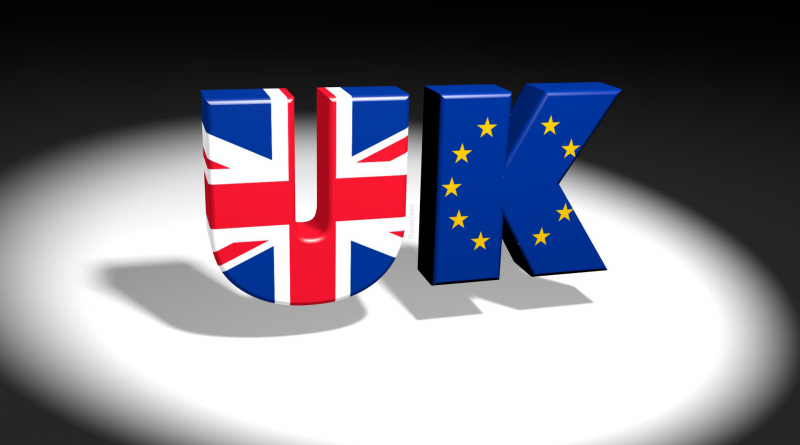03 October 2019
118 Bishops
Can only be wrong.
By John Watson
 Anselm perhaps, or Becket? Or the grey eminence himself, François Leclerc du Tremblay, the Capuchin friar who advised Richelieu and is immortalised as Father Joseph in The Three Musketeers? Yes, there are churchmen who have strayed fearlessly into the centre of politics, but the 118 Church of England bishops who have asked parliamentarians to be more respectful of each other do not measure up to these giants. Also they miss the point.
Anselm perhaps, or Becket? Or the grey eminence himself, François Leclerc du Tremblay, the Capuchin friar who advised Richelieu and is immortalised as Father Joseph in The Three Musketeers? Yes, there are churchmen who have strayed fearlessly into the centre of politics, but the 118 Church of England bishops who have asked parliamentarians to be more respectful of each other do not measure up to these giants. Also they miss the point.
The issue of Brexit is the most important we have faced for some time and it goes to something fundamental. Forget for a moment the peripheral problems, the dislocation and cost of leaving, the damage to national morale of changing course at this stage and all the rest of it, not because they are minor, which they are not, but because they distract from the real point. The choice is whether our future as a country will be better and our contribution to solving real problems like climate change and the social effects of robotics will be greater if we go forward as part of a major block or whether we should be making that contribution through more direct relationships throughout the world. You can argue it either way and I certainly do not intend to discuss the issue here save to emphasise its importance. Make no mistake, the choice we make will determine how historians view us in a hundred years time.
On something like this it is right that people should feel strongly and one of the lessons of history is that people who feel strongly are prepared to fight for ideas. Look at the 30 Years War, the struggle between Catholicism and Protestantism in the 17th century which reduced the population of Germany by about 50%. Look at the Spanish Civil War, a conflict between political philosophies which led to unbelievable cruelty. Two hundred years ago we would have discussed Brexit at the point of the bayonet. Thank goodness we have moved on from that, but it remains the fact that feelings over national identity run deep and both sides will grab whatever weapons they can to promote their view. It is no surprise then that incidents from Boris Johnson’s past are being raked up. That is not because of moral outrage (if his conduct has indeed been outrageous, was it not equally so before he became Prime Minister?) but because they can be used as a weapon. Other weapons include tricks such as proroguing Parliament and the abusive language which is beginning to flow from both sides. There is no point getting upset about it. In a real fight people play the man not the ball and that is what we are seeing. No amount of bleating by bishops will alter that and surely they cannot have expected it to do so. More likely they felt that they should be saying something and went for something they thought would be inoffensive.
The fact that we are so shocked by the current parliamentary antics (if indeed we are) is a sign of how mealymouthed we have all become. Look at the comments by Matt Hancock at the Conservative Party conference on vaccinations. He is a man faced with a crisis. Take-up of the MMR jab has fallen to a level where measles is a threat to public health. Mr Hancock would clearly like to make inoculation compulsory but faces resistance from health professionals who fear it could cause resentment. So he has to wrap his comments in words about a “two-way street” saying that the fact that the state provides services somehow imposes responsibilities on the citizen. I do not blame Mr Hancock for this. He has to operate within society as it is and to corral support by conventional means. I am sure he would love to tell parents “you just get your child vaccinated because it is the law and in the public interest” but he cannot afford to be so direct. In a way it is a relief to hear those involved in the Brexit debate being considerably blunter and ruder.
Nor do I really understand the comments in the press about how the aggression generated by Brexit it is tearing society apart. I have many friends who think differently and have seldom felt antagonism simply because we disagree. Nor have I felt that the issue has to be avoided or even that our analysis of what is at stake is particularly different. It is simply that we attach more or less weight to different things. Perhaps, though, that is because I live in Islington where political chatter is part of the landscape.
Maybe the world is different outside the M25. Perhaps then the right result is to forget Ireland and make the centre of that motorway the border with the EU market. It would offer a choice to the motorist. Travelling clockwise and you would be in the Customs Union. Travel anticlockwise and you could make use of London’s free trade agreements. Goodness knows what satnav would suggest you do if it thought you were travelling the wrong way!


